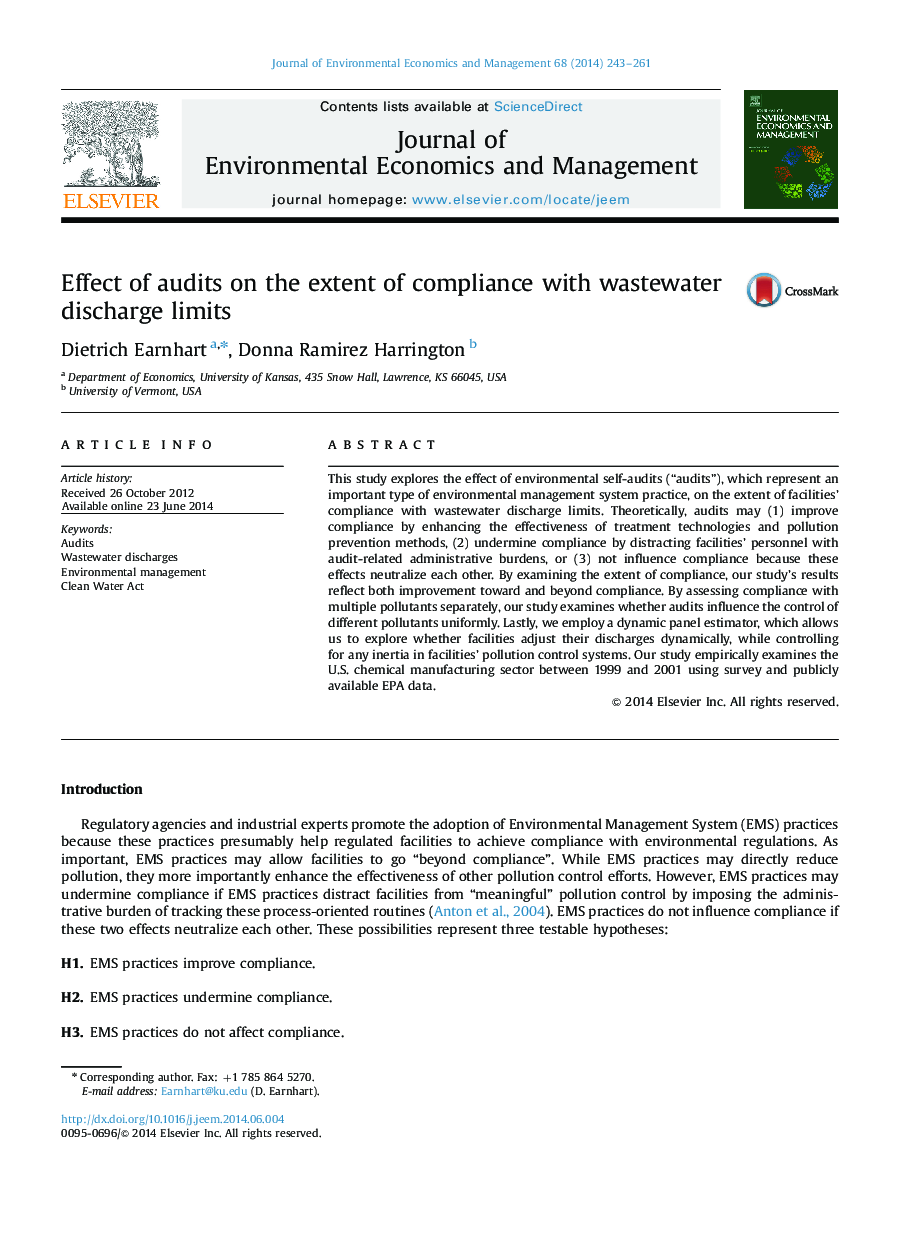| Article ID | Journal | Published Year | Pages | File Type |
|---|---|---|---|---|
| 10475571 | Journal of Environmental Economics and Management | 2014 | 19 Pages |
Abstract
This study explores the effect of environmental self-audits (“audits”), which represent an important type of environmental management system practice, on the extent of facilities' compliance with wastewater discharge limits. Theoretically, audits may (1) improve compliance by enhancing the effectiveness of treatment technologies and pollution prevention methods, (2) undermine compliance by distracting facilities' personnel with audit-related administrative burdens, or (3) not influence compliance because these effects neutralize each other. By examining the extent of compliance, our study's results reflect both improvement toward and beyond compliance. By assessing compliance with multiple pollutants separately, our study examines whether audits influence the control of different pollutants uniformly. Lastly, we employ a dynamic panel estimator, which allows us to explore whether facilities adjust their discharges dynamically, while controlling for any inertia in facilities' pollution control systems. Our study empirically examines the U.S. chemical manufacturing sector between 1999 and 2001 using survey and publicly available EPA data.
Related Topics
Social Sciences and Humanities
Economics, Econometrics and Finance
Economics and Econometrics
Authors
Dietrich Earnhart, Donna Ramirez Harrington,
